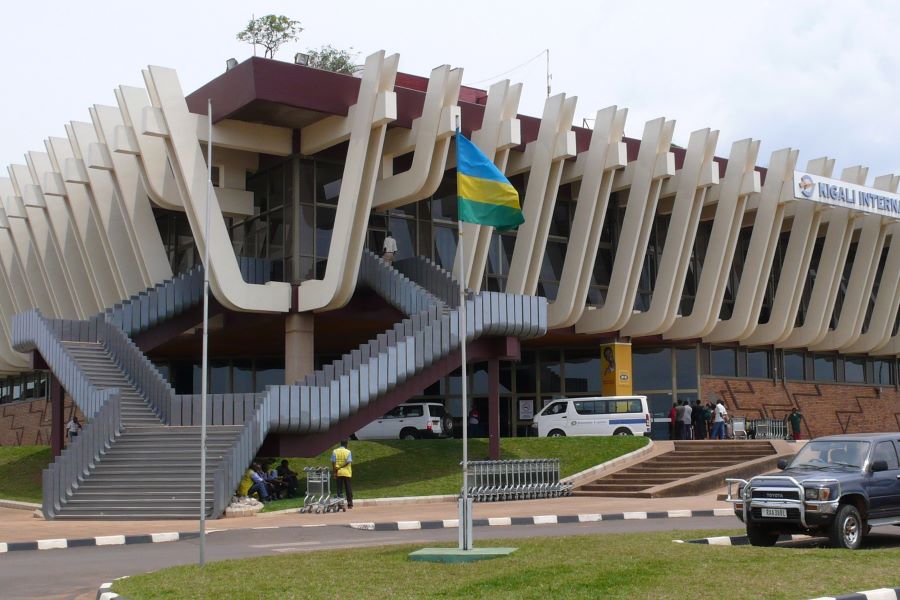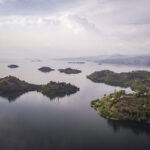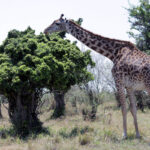Rwanda is a beautiful country located in East Africa, known for its stunning natural beauty, diverse wildlife, and rich cultural heritage. For someone who is interested in visiting, the question comes up, “Is Rwanda safe to visit”?
As a tourist destination, Rwanda is increasingly becoming popular among travelers, who come to explore the country’s many attractions, such as gorilla trekking, safaris, and cultural tours.
While Rwanda is generally safe for tourists, it’s important to take necessary safety precautions to ensure a safe and enjoyable trip. Below are some of the top safety guidelines for traveling to Rwanda, so you can have a memorable and safe experience while exploring this beautiful country.

Safety Guidelines for Traveling to Rwanda
Transportation Safety
Transportation safety is important when traveling in Rwanda, as road accidents are common. Here are some transportation safety guidelines to follow:
- Use reputable taxi services: If you need to use a taxi, use reputable taxi services, such as SafeMotos or Yego Moto. Avoid hailing a taxi on the street, as this can be unsafe.
- Avoid walking alone at night: Avoid walking alone at night, especially in isolated areas. If you need to walk at night, do so in well-lit areas.
- Be cautious when using public transportation: If you’re using public transportation, be cautious of pickpockets and keep your belongings close to you. If possible, use private transportation services, such as car rentals.
- Wear seatbelts: Always wear seatbelts when traveling in a car or a bus. In Rwanda, it’s mandatory to wear seatbelts while driving.
- Check for safety features: When traveling by bus, make sure that the bus has basic safety features such as emergency exits, functioning seatbelts, and fire extinguishers.
- Use caution when driving: Roads in Rwanda can be narrow and winding, and drivers may not follow traffic laws. It’s important to use caution when driving and always wear a seatbelt.
Health Precautions
Rwanda is a tropical country, and certain health precautions should be taken to prevent illness. Here are some health guidelines to follow:
- Get vaccinated: Before traveling to Rwanda, make sure that you’re up-to-date with your vaccinations. Recommended vaccinations include yellow fever, hepatitis A and B, and typhoid.
- Use insect repellent: Use insect repellent to prevent mosquito bites, as mosquitoes can transmit diseases such as malaria and dengue fever. It’s also recommended to use mosquito nets while sleeping.
- Drink bottled water: Drink bottled water to prevent waterborne illnesses such as cholera and typhoid. Avoid drinking tap water or using it to brush your teeth.
- Avoid street food: Avoid eating street food to prevent foodborne illnesses. Stick to well-cooked food in restaurants and hotels.
- Pack a first aid kit: Pack a first aid kit with basic medical supplies such as band-aids, antiseptic, and pain relievers.
Personal Safety
Personal safety is important when traveling in Rwanda, especially in urban areas. Here are some personal safety guidelines to follow:
- Be aware of your surroundings: Be aware of your surroundings at all times, especially in crowded areas. Keep an eye out for any suspicious behavior.
- Avoid wearing expensive jewelry or carrying large amounts of cash: Avoid wearing expensive jewelry or carrying large amounts of cash, as this can make you a target for theft. Use a money belt or a hidden pocket to keep your valuables safe.
- Keep your valuables safe: Keep your valuables, such as your passport and wallet, in a secure place, such as a hotel safe.
- Be cautious when using ATMs: Be cautious when using ATMs, especially at night or in isolated areas. Use ATMs in well-lit areas and cover your PIN while entering it.
- Be cautious when using your phone: Be cautious when using your phone in public, as phone snatching is a common crime in Rwanda. Keep your phone close to you and avoid using it in crowded areas.

Cultural Norms and Customs
Rwanda has a rich cultural heritage, and it’s important to respect local customs and traditions when traveling there.
Here are some cultural guidelines to follow:
- Dress appropriately: Dress modestly, especially when visiting religious sites or local villages. Shorts and tank tops may be considered inappropriate in some areas.
- Ask for permission before taking photos: Always ask for permission before taking photos of people or their homes. Some people may not feel comfortable with having their picture taken.
- Respect local customs: Respect local customs and traditions, such as removing your shoes before entering someone’s home or greeting people with a handshake.
- Learn some basic phrases: Learn some basic phrases in Kinyarwanda, the local language. This can help you to communicate better with locals and show that you respect their culture.
- Be respectful of the genocide memorial sites: Rwanda has a tragic history of genocide, and it’s important to be respectful when visiting the genocide memorial sites. Dress appropriately and refrain from taking photos.
Safety Guidelines for Gorilla Trekking in Rwanda
Gorilla trekking is one of the most popular tourist activities in Rwanda, but it also involves hiking in the wilderness and being in close proximity to wild animals.
Here are some safety guidelines to follow when going for gorilla trekking:
- Follow the instructions of the guide: It’s important to follow the instructions of the guide at all times. This includes staying with the group, keeping a safe distance from the gorillas, and following safety procedures in case of an emergency.
- Wear appropriate clothing: Wear comfortable hiking shoes and clothing that covers your body. This will protect you from scratches and insect bites.
- Keep a safe distance from the gorillas: The minimum distance to keep from the gorillas is 7 meters. This is to protect both you and the gorillas from any potential harm.
- Avoid touching the gorillas: It’s important to never touch the gorillas, even if they come close to you. This is to avoid transmitting diseases and to ensure that the gorillas remain wild animals.
- Don’t use flash photography: Flash photography is prohibited when taking pictures of gorillas. This is to avoid scaring them and disturbing their natural behavior.
- Don’t litter: Always carry your trash with you and dispose of it in designated areas. Littering can harm the environment and the animals.
![]()
Safari Safety
When going on a safari in Rwanda, it’s important to take certain safety precautions to ensure that you have a safe and enjoyable experience.
Here are some guidelines to follow:
- Hire a licensed guide: It’s important to hire a licensed guide who is knowledgeable about the area and the animals. They will ensure that you are safe throughout the safari and provide you with valuable information about the animals and the environment.
- Stay in designated areas: When on a safari, it’s important to stay in designated areas and not venture into areas that are off-limits. This is to avoid potential dangers and to protect the animals and their natural habitat.
- Keep a safe distance from the animals: It’s important to keep a safe distance from the animals at all times. This is to avoid disturbing them and to ensure your safety.
- Don’t feed the animals: Feeding the animals can be dangerous and is prohibited in most parks and reserves. It can also cause the animals to become dependent on human food and lose their natural instincts.
- Follow the instructions of the guide: It’s important to follow the instructions of the guide at all times. This includes staying in the vehicle, not making sudden movements, and following safety procedures in case of an emergency.
- Be prepared for the weather: The weather can change quickly during a safari. It’s important to bring appropriate clothing and gear to protect yourself from the elements, such as sunblock, hats, and waterproof clothing.
- Be aware of your surroundings: Always be aware of your surroundings and any potential dangers. This includes keeping an eye out for other animals, such as snakes, and being cautious when walking on uneven terrain.
Emergency Information
-
Carry emergency contact information
Before traveling to Rwanda, make sure to carry emergency contact information, including the contact information for your embassy or consulate in Rwanda. Additionally, make sure to have travel insurance that covers medical emergencies and evacuation.
Here is the website to the Police of Rwanda where you can learn more about emergency services and how to get help.
-
Embassy or Consulate
It’s important to know the contact information of your embassy or consulate in Rwanda in case of an emergency. They can provide assistance in case of lost or stolen passports, medical emergencies, and other unforeseen situations.
Make sure to have their contact information readily available, including their address, phone number, and email address.
-
Local emergency services
In case of a medical emergency or accident, it’s important to know the local emergency service numbers. In Rwanda, the emergency number is 112. You can also contact the Rwanda National Police on 112 in case of any safety or security concerns.
-
Medical facilities
It’s important to know the location and contact information of medical facilities, including hospitals and clinics, in case of a medical emergency.
-
Travel Insurance
Travel insurance is essential when traveling to any foreign country, and Rwanda is no exception. Make sure to purchase travel insurance that covers medical emergencies and evacuation.
In case of an emergency, your travel insurance provider can provide assistance and support.
-
Emergency supplies
It’s always a good idea to carry emergency supplies, such as a first-aid kit, water, and non-perishable food, in case of an unexpected event. Additionally, make sure to carry any necessary medications and keep them easily accessible.
Conclusion
Rwanda is a beautiful and safe country to visit, but like any other country, it’s important to take safety precautions to ensure a safe and enjoyable trip. Whether you’re going gorilla trekking or on a safari, it’s important to hire a licensed guide, follow their instructions, keep a safe distance from animals, wear appropriate clothing, and avoid littering.
Additionally, make sure to have travel insurance, bring necessary medication and first-aid supplies, and keep emergency contact information handy. By taking these safety measures, you can have a memorable and safe experience while exploring Rwanda’s natural beauty and cultural heritage.
Related articles
- Rwanda visa requirements for tourists
- Top places in Rwanda on holiday
- Best time to visit Rwanda for safari




















